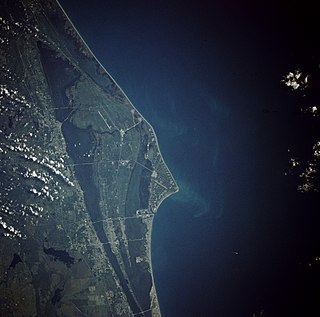
The Huns were a nomadic people who lived in Central Asia, the Caucasus, and Eastern Europe, between the 4th and 6th century AD. According to European tradition, they were first reported living east of the Volga River, in an area that was part of Scythia at the time; the Huns' arrival is associated with the migration westward of an Indo-Iranian people, the Alans. By 370 AD, the Huns had arrived on the Volga, and by 430 the Huns had established a vast, if short-lived, dominion in Europe, conquering the Goths and many other Germanic peoples living outside of Roman borders, and causing many others to flee into Roman territory. The Huns, especially under their King Attila, made frequent and devastating raids into the Eastern Roman Empire. In 451, the Huns invaded the Western Roman province of Gaul, where they fought a combined army of Romans and Visigoths at the Battle of the Catalaunian Fields, and in 452 they invaded Italy. After Attila's death in 453, the Huns ceased to be a major threat to Rome and lost much of their empire following the Battle of Nedao (454?). Descendants of the Huns, or successors with similar names, are recorded by neighbouring populations to the south, east, and west as having occupied parts of Eastern Europe and Central Asia from about the 4th to 6th centuries. Variants of the Hun name are recorded in the Caucasus until the early 8th century.

William Howard Taft was the 27th president of the United States (1909–1913) and the tenth chief justice of the United States (1921–1930), the only person to have held both offices. Taft was elected president in 1908, the chosen successor of Theodore Roosevelt, but was defeated for re-election by Woodrow Wilson in 1912 after Roosevelt split the Republican vote by running as a third-party candidate. In 1921, President Warren G. Harding appointed Taft to be chief justice, a position in which he served until a month before his death.

The Non-Aligned Movement (NAM) is a forum of 120 developing world states that are not formally aligned with or against any major power bloc. After the United Nations, it is the largest grouping of states worldwide.

Soylent Green is a 1973 American dystopian thriller film directed by Richard Fleischer and starring Charlton Heston and Leigh Taylor-Young. Edward G. Robinson appears in his final film. Loosely based on the 1966 science fiction novel Make Room! Make Room! by Harry Harrison, it combines both police procedural and science fiction genres; the investigation into the murder of a wealthy businessman and a dystopian future of dying oceans and year-round humidity due to the greenhouse effect, resulting in suffering from pollution, poverty, overpopulation, euthanasia and depleted resources.

The Watergate scandal was a major American political scandal that lasted from 1972 to 1974, following a burglary by five men of the Democratic National Committee (DNC) headquarters at the Watergate office complex in Washington, D.C. on June 17, 1972, and President Richard Nixon's subsequent attempt to cover up his administration's involvement. After the five burglars were caught and the conspiracy was discovered—chiefly through the work of a few journalists, Congressional staffers and an election-finance watchdog official—Watergate was investigated by the United States Congress. Meanwhile, Nixon's administration resisted its probes, which led to a constitutional crisis.

Cape Canaveral, from the Spanish Cabo Cañaveral, is a cape in Brevard County, Florida, United States, near the center of the state's Atlantic coast. Known as Cape Kennedy from 1963 to 1973, it lies east of Merritt Island, separated from it by the Banana River. It was discovered by the Spanish conquistador Juan Ponce de León in 1513.

The Byrds were an American rock band formed in Los Angeles, California in 1964. The band underwent multiple lineup changes throughout its existence, with frontman Roger McGuinn remaining the sole consistent member. Although they only managed to attain the huge commercial success of contemporaries like the Beatles, the Beach Boys, and the Rolling Stones for a short period in the mid-1960s, the Byrds are today considered by critics to be nearly as influential as those bands. Their signature blend of clear harmony singing and McGuinn's jangly twelve-string Rickenbacker guitar was "absorbed into the vocabulary of rock" and has continued to be influential.
The 1973 oil crisis began in October 1973 when the members of the Organization of Arab Petroleum Exporting Countries proclaimed an oil embargo. The embargo was targeted at nations perceived as supporting Israel during the Yom Kippur War. The initial nations targeted were Canada, Japan, the Netherlands, the United Kingdom and the United States with the embargo also later extended to Portugal, Rhodesia and South Africa. By the end of the embargo in March 1974, the price of oil had risen nearly 400%, from US$3 per barrel to nearly $12 globally; US prices were significantly higher. The embargo caused an oil crisis, or "shock", with many short- and long-term effects on global politics and the global economy. It was later called the "first oil shock", followed by the 1979 oil crisis, termed the "second oil shock."

A cloister is a covered walk, open gallery, or open arcade running along the walls of buildings and forming a quadrangle or garth. The attachment of a cloister to a cathedral or church, commonly against a warm southern flank, usually indicates that it is part of a monastic foundation, "forming a continuous and solid architectural barrier... that effectively separates the world of the monks from that of the serfs and workmen, whose lives and works went forward outside and around the cloister."

Julius Kambarage Nyerere was a Tanzanian anti-colonial activist, politician, and political theorist. He governed Tanganyika as Prime Minister from 1961 to 1962 and then as President from 1963 to 1964, after which he led its successor state, Tanzania, as President from 1964 to 1985. A founding member of the Tanganyika African National Union (TANU) party—which in 1977 became the Chama Cha Mapinduzi party—he chaired it until 1990. Ideologically an African nationalist and African socialist, he promoted a political philosophy known as Ujamaa.
Toei Company, Ltd. is a Japanese film, television production, and distribution and Video game developer and publisher corporation. Based in Tokyo, Toei owns and operates thirty-four movie theaters across Japan, studios at Tokyo and Kyoto; and is a shareholder in several television companies. It is notable for anime, live action dramas known as tokusatsu which use special visual effects, and historical dramas (jidaigeki). It is a member of the Motion Picture Producers Association of Japan (MPPAJ), and is one of Japan's Big Four film studios.

Robert James Fischer was an American chess grandmaster and the eleventh World Chess Champion. Many consider him to be the greatest chess player of all time.

The 1973–74 season of the European Cup football club tournament was won for the first time by Bayern Munich, beginning their own three-year period of domination, in a replayed final against Atlético Madrid. This was the first time the cup went to Germany, and the first European Cup final to require a replay after the first match was drawn 1–1 after extra time.

The Women's World Cup is currently organised by the International Cricket Council (ICC). Until 2005, when the two organisations merged, it was administered by a separate body, the International Women's Cricket Council (IWCC). The first World Cup was held in England in 1973, two years before the inaugural men's tournament. The event's early years were marked by funding difficulties, which meant several teams had to decline invitations to compete and caused gaps of up to six years between tournaments. However, since 2005 World Cups have been hosted at regular four-year intervals.

The dreadnought was the predominant type of battleship in the early 20th century. The first of its kind, the Royal Navy's HMS Dreadnought, made such a strong impression on people's minds when launched in 1906 that similar battleships built subsequently were referred to generically as "dreadnoughts", and earlier battleships became known as "pre-dreadnoughts". Dreadnought's design had two revolutionary features: an "all-big-gun" armament scheme, with more heavy-calibre guns than previous ships; and steam turbine propulsion. As dreadnoughts became a symbol of national power, the arrival of these new warships was a crucial catalyst in the intensifying naval arms race between the United Kingdom and Germany. With the launch of a single ship, Dreadnought, the scales of naval power were reset overnight. As a result, dreadnought races sprang up around the world, including in South America, during the lead up to World War I. Successive designs increased rapidly in size and made use of improvements in armament, armour, and propulsion throughout the dreadnought era. Within five years, new battleships had outclassed Dreadnought. These more powerful vessels were known as "super-dreadnoughts". Most of the original dreadnoughts were scrapped after the end of World War I under the terms of the Washington Naval Treaty, but many of the newer super-dreadnoughts continued to be used throughout World War II. The only surviving dreadnought is USS Texas, located near the San Jacinto Battleground State Historic Site.
The ATP Rankings are the method used by the Association of Tennis Professionals (ATP) for determining the qualification for entry as well as the seeding of players in all singles and doubles tournaments. They attempt to be objective and merit-based. The first rankings for singles were published on 23 August 1973 while the doubles players were ranked for the first time on 1 March 1976. Ranking points are awarded according to the stage of tournament reached, and the prestige of the tournament, with the four Grand Slams awarding the most points. The rankings are updated every Monday, and points are dropped 52 weeks after being awarded. Novak Djokovic is the current world No.1.












